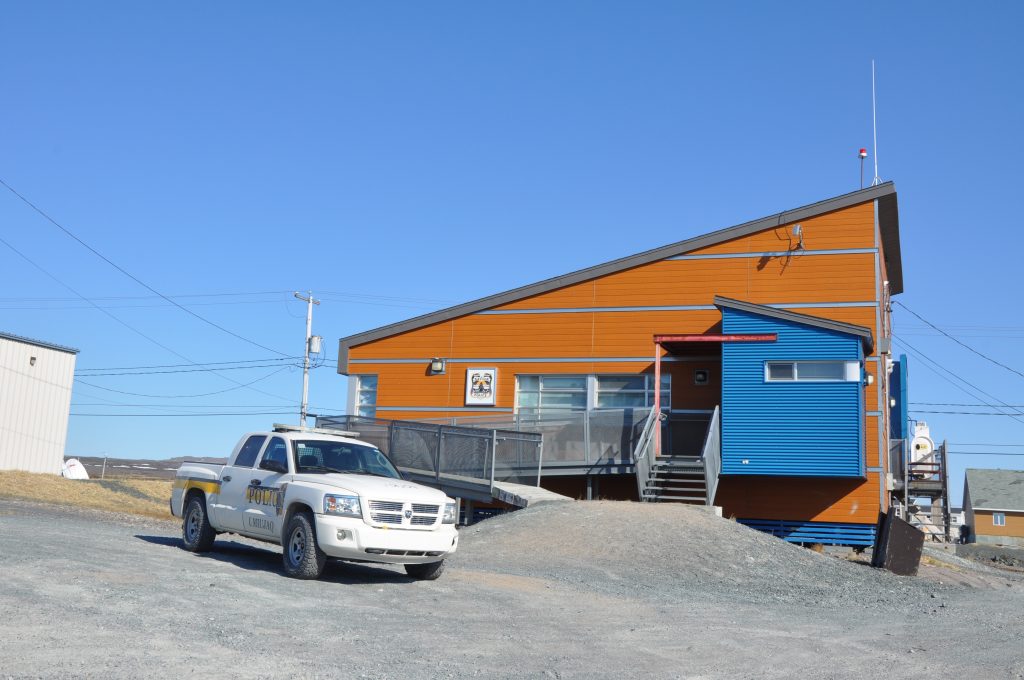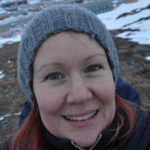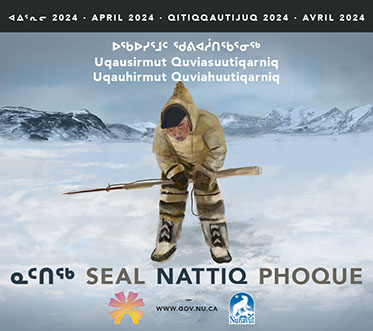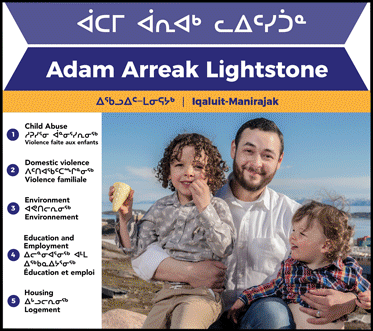Better communication may have prevented 2017 Nunavik shooting death: coroner’s report
The KRPF says it’s already implemented a number of the report’s recommendations
Quebec’s coroner’s office has issued a number of recommendations to the Kativik Regional Police Force following the 2017 shooting death of an Umiujaq man. (File photo)
Nunavik police say they are on board with recommendations made by Quebec’s coroner’s office following the 2017 death of an Umiujaq man.
The report calls on the Kativik Regional Police Force to hire more Inuit officers and staff and use tools to help de-escalate violent encounters.
David Sappa, 22, was shot and killed by Kativik Regional Police Force officers in Umiujaq on Dec. 28, 2017, after the man was alleged to have posed a safety threat to the community of about 400 people.
According to an investigation and report prepared by the Bureau des enquêtes indépendantes, or BEI, KRPF officers were called to respond to a disturbance at Sappa’s home in the middle of the afternoon that day.
When the 22-year-old refused to co-operate with police, one officer returned to the local station to obtain an entry warrant.
During that time, Sappa is alleged to have left his home, armed with knives, while he made his way to the community centre where holiday activities were being held.
Police officers tried to prevent Sappa from entering the centre, the BEI report said, but when the armed man turned towards police, officers shot him. Sappa died that evening at the local health centre.
A report by Quebec coroner Éric Lépine, released on June 5, said that Sappa sustained three to four gunshots, one of which wounded him fatally.
The coroner said Sappa had no alcohol in his system at the time, but had consumed cannabis—four nanograms per millilitre, or double the legal limit to drive.
In 2019, Quebec’s Crown prosecutor’s office cleared the officers involved in Sappa’s death of any wrongdoing, saying the officers acted in self-defence.
The coroner’s report noted the threat to officers was “immediate and put their lives in danger” but also added that “Sappa’s death was not inevitable.”
The coroner said communication was a major barrier between police, who spoke in English, and Sappa, whose first language was Inuktitut. Had police been able to communicate with Sappa in Inuktitut, that would have had the potential to diffuse the situation, the coroner said.
The report made five recommendations directed to the KRPF:
- Recruit and hire Inuit officers, with the goal of stationing one in each community
- Hire an Inuk intervener in each community to help in a crisis
- Hire at least one officer per community who has at least five years of policing experience
- Ensure officers have functioning communications equipment
- Equip police officers with Tasers
To the latter point, the KRPF now has a sergeant prepared to train up to 60 officers to use Tasers, with plans to distribute the stun guns to each of the 14 detachments across the region.
Tasers could help de-escalate high-risk altercations, the report said, while also preventing the risk of stray bullets causing harm.
The KRPF said it’s also in talks with Nunavik communities about hiring a local Inuk interpreter to work with officers when there’s a crisis.
Currently, just four of the KRPF’s 90 officers are Inuit. The force says it continues to recruit new officers in the North and south.
“Most of these recommendations were already implemented by the KRPF when the report was received, and others are ongoing as the KRPF agree with them,” KRPF Chief Jean-Pierre Larose told Kativik Regional Government council meetings last week.







The recommendation about hiring Inuit police are as worn out as an old comfy sock. Is that recommendation from the coroner’s office suppose to be the newest great problem solving strategy or what? Theres more wrong with why Inuit are not police then meets the eye here. As a matter of fact there are multiple factors keeping the force from being staffed locally. Education is one major factor. Not enough Inuit getting the education in high school to go on to higher trades. Inuit just don’t have an interest that is genuine to that type of work anyway. The few that have passed through the ranks up and down, we’re in the most parts, just fleeting with the little thrill that fades away quickly, again not really educated to go further. Most Inuit feel there’s a losing battle with the society issues of alcohol and drugs, therefore not feeling any hope to change anything. Feelings of just live the status quo, let the south sent in the people to police. That’s some of the issues faced by Inuit to become police. On the other hand, there’s this lack of interest created by the philosophical and political systems within the French culture, that Inuit don’t want to be associated with. My solution would be to hire more Canada wide candidates.
It’s not simply an issue of ‘inuit are too uneducated’ to be police… Many of us with educations have absolutely no desire to work for the KRPF, and it’s not a surprise that those few Inuit to have worked for them have many, many terrible stories about their times trying to make a difference with the police in Nunavik.
.
It’s the same issue with Inuit in Nunavut who were RCMP, they end up leaving policing for other things that are less resistant to Inuit reforms within, for instance there is a former officer turned law student in Nunavut… his issue with a career in policing was certainly not being uneducated.
.
I wouldn’t be surprised if there are more educated Inuit who wanted to be police and stopped trying due to the various institutional failings within the forces than there are would-be applicants who want to be police but don’t get the amount of education necessary for that kind of job. Especially when they become police, they are suddenly tasked with extra duties to be translators and mediators and everything else that comes with being the only inuk cop around… I doubt they get pays to reflect all the added work and stresses that come from being the Inuk cop, and then they leave for something that pays better and causes less headaches.
What I read between your lines is that there will be no change as by your view , anytime soon. Sometimes you just got to get up there and do the most difficult thing in your life, if you want to make a difference. It’s painfully done, it’s courage, it’s like the people that have gone to fight for country freedoms. It’s the hardest thing to do, but it’s got to be done. Inuit got to get out of the easy way to things and go for the best, but it comes with sacrificing many things, I’m not seeing that in Nunavik.
If you want to think it’s because we are uneducated or too spoiled to be police, there’s not much more that can be said other than I disagree entirely, and feel that the system of policing in place is the biggest barrier to its own functions, especially recruiting inuit officers. The idea of ‘changing it from the inside’ has been disproven for decades, perhaps Nunavimmiut are smart enough to realize that and choose to do other things that are more productive for our people.
What can be more productive than caring for people with good policing, good health care , good social services, and other such professional roles in the community? How can you not want to be part of that, and stand up against anyone and anything that try’s to stop you. This is culture being taken over by another culture and the victim culture is doing nothing to prevent it. No thing and no one is stopping Inuit , except Inuit themselves. It’s passive thinking to let another culture rule your life, because you don’t want to have responsibilities for it.
I had actually referenced several ways of serving in the community in what I had written, and why it is more beneficial than just joining the KRPF, but the NN moderation staff cut it from my response.
.
“Passive thinking to let another rule my culture” is not a problem for me whatsoever, I have been able to receive a good education from the sacrifices of our treaty and I have been using it in beneficial ways for the communities, and I also do things related to justice and policing reforms… So I don’t need to sign up to work in a broken institution like the KRPF.
.
I had mentioned how we are beginning to produce our own teachers, nurses, scientists, lawyers, etc who are getting acclaim from their peers in the south more and more every year, yet we don’t see as many police for a reason. Nunavimmiut are dedicating their time to more beneficial careers than working alongside police officers that even qallunaat police and corrections workers think are too excessively violent and wild… If southerners don’t want to work for the KRPF because of their institutional deficiencies, why should we expect Inuit to do so for even more stresses without more compensation than those who come up? People realize they can be paid more for less headaches in more useful roles than policing up north, and that’s an issue with the system of policing in place, not Inuit shortsightedness or lack of education.
No desire is the problem , not only police jobs, health care too, teachers too, , and many , business and jobs of Nunavik. Nunavik is failing to put that desire in people. The desire I see is to get to the beer store and drive out the roads drunk. No desire to take care of kids. No desire to wake up in the morning and go to any type of work. Look at the no desirables. No desire no motivation. Continuing a downward spiral into losing culture, and way of life, from no desire. Who fault is that?
As we discuss police recruitment, don’t forget that it belongs to a bigger problem. It’s the same with most vital careers in Nunavik. Many , and too many Inuit have taken cover under the safety of Inuit organizations, neglecting to get involved in the professional careers of the community. As professional careers carry a certain responsibility that many are not willing to take. With professional work, as with any work, you got to show up in the beginning of your shift. Professional responsibility screams harder at the no shows then say, the blue collar jobs. It’s all about taking the easier way around life, and letting someone else do it. Until we get the leaders of a culture coming from that culture, our society will continue to suffer. Right now in Nunavik, another culture runs Nunavik affairs, because Nunavik refuses to take charge. Too much alcohol and drug use spilled over into everyone’s life.
Where there is power, there are no leaders. Where there are leaders, there’s no power. This seems the way of life n Nunavik. It’s one or the other at the same time.
There was no turning back for the young man (rest in peace). Nobody was intervening.
In cases of distress, there is no help out there. There is either the police who are doing their duty (who have to judge on urgency) or social workers who just arrived and don’t know the town or the people (expected to save families and defuse their fires) .
There is a bottom line to stories such as this situation. Going around with knives, heading to a large group of people. I’m not sure if you can blame anyone but the culprit. Communication lacks or not. If this person would have got his way with the knives, we would be blaming police and lack of communication still. Nunavik communities need to start taking responsibility for the health and well being of children , to grow up healthily. How do being Inuit, need different special communication skills to deal with a knives welding individual, like he don’t really mean it, he just needs to be spoken to in Inuktitut.? I don’t think , he misunderstood at all. Mental illness, drugged, he still had to be stopped from injury to others.